Sliding Shower Doors
Sliding shower doors are a practical and stylish choice for modern bathrooms. These doors glide along tracks, providing easy access to your shower while keeping water contained. Choosing the right shower door is important for both the look and function of your bathroom. Sliding doors can make small spaces feel larger, add a touch of elegance, and improve your daily shower experience. They're worth considering whether you're updating your current bathroom or designing a new one.
Roman Showers Haven8 Level Access Sliding Shower Door - 1200mm Wide - Right Handed
Roman Showers Haven Level Access Sliding Shower Door - 1700mm Wide - Right Handed
Roman Showers Haven Level Access Sliding Shower Door - 1700mm Wide - Left Handed
Roman Showers Haven Level Access Sliding Shower Door - 1400mm Wide - Left Handed
Roman Showers Haven Level Access Sliding Shower Door - 1400mm Wide - Right Handed
Roman Showers Haven Level Access Sliding Shower Door - 1500mm Wide - Left Handed
Roman Showers Haven Level Access Sliding Shower Door - 1500mm Wide - Right Handed
Roman Showers Haven Level Access Sliding Shower Door - 1700mm Wide - Right Handed
Roman Showers Haven Level Access Sliding Shower Door - 1700mm Wide - Left Handed
Purity Collection Icona 1400mm Semi-Framed Sliding Door - Chrome
Purity Collection Icona 1500mm Semi-Framed Sliding Door - Chrome
Purity Collection Icona 1700mm Semi-Framed Sliding Door - Chrome
Merlyn Ionic Essence 1000mm Sliding Door with a Side Panel
Ideal Standard i.life 1500mm Bright Silver Double Sliding Door
Roman Liberty 8mm Sliding Door Right Hand 1200mm (Alcove Fitting)
Roman Liberty 8mm Sliding Door Left Hand 1200mm (Alcove Fitting)
Ideal Standard i.life 1700mm Bright Silver Double Sliding Door
Roman Liberty 8mm Sliding Door Right Hand 1400mm (Alcove Fitting)
Roman Liberty 8mm Sliding Door Left Hand 1400mm (Alcove Fitting)
Roman Liberty 10mm Sliding Door Left Hand 1200mm (Alcove Fitting)
Roman Liberty 10mm Sliding Door Right Hand 1200mm (Alcove Fitting)
Roman Liberty 8mm Sliding Door Left Hand 1500mm (Alcove Fitting)
Roman Liberty 8mm Sliding Door Right Hand 1500mm (Alcove Fitting)
Novellini Kuadra 2.0 2AH Double Sliding Doors Shower Enclosure
Roman Liberty 10mm Sliding Door Left Hand 1400mm (Alcove Fitting)
Roman Liberty 10mm Sliding Door Right Hand 1400mm (Alcove Fitting)
Roman Liberty 8mm Sliding Door Right Hand 1700mm (Alcove Fitting)
Roman Liberty 8mm Sliding Door Left Hand 1700mm (Alcove Fitting)
What are Sliding Shower Doors?
Sliding shower doors, also called bypass doors, are shower enclosures that open by sliding horizontally on a track. Unlike swing doors that need space to open outward, sliding doors move parallel to the shower wall. This design makes them ideal for bathrooms where space is limited.
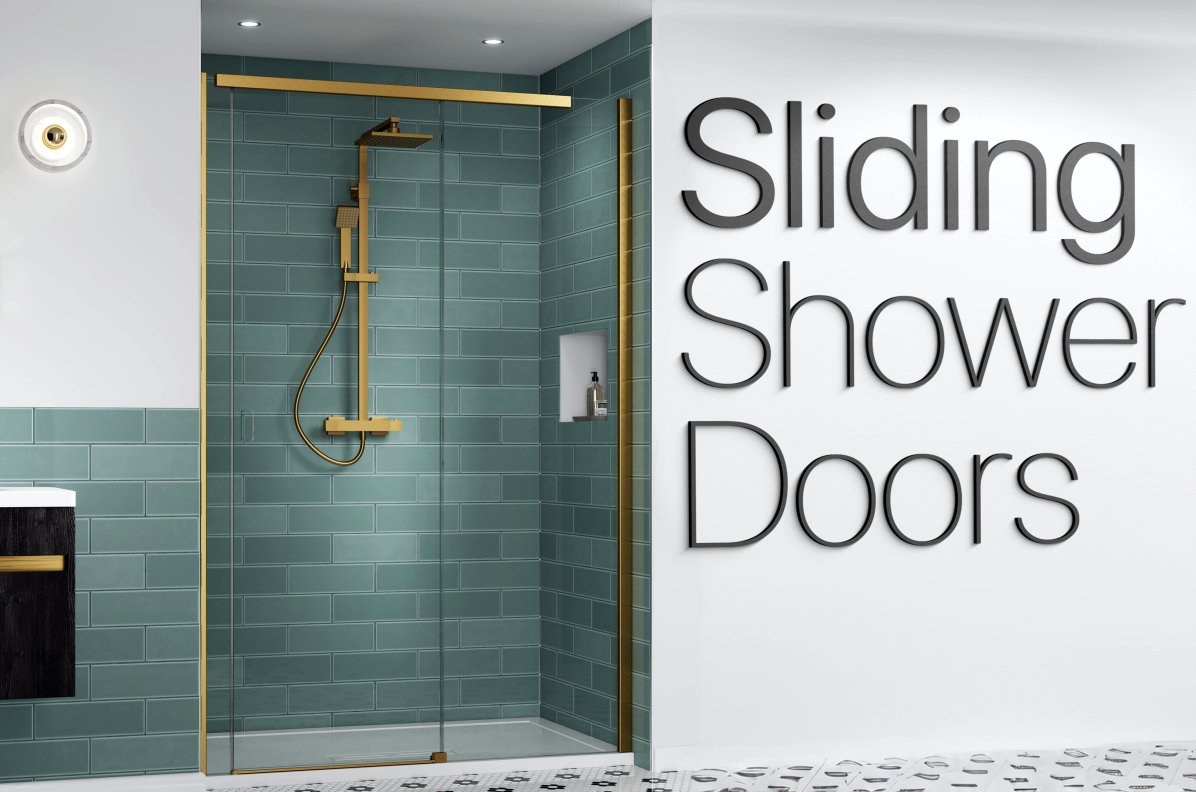
There are two main types: single sliding doors and double sliding doors. Single sliding doors have one fixed panel and one moving panel. The sliding panel moves along a track, overlapping the fixed panel when opened. This type works well for smaller shower openings or when you want to maximise the entrance width.
Double sliding doors have two panels that both slide. They can open from the centre or from either end, depending on the design. These are better suited for wider shower openings and offer more flexibility in terms of access.
Glass is the most common material for sliding shower doors. It comes in different thicknesses and can be clear, frosted, or textured for privacy. Tempered glass is used for safety; if it breaks, it shatters into small, dull pieces instead of sharp shards.
The frames and tracks are usually made of aluminium. It's light, durable, and resists water and corrosion. Some high-end models use stainless steel for extra durability and a more luxurious look.
You'll need to choose between frameless and framed sliding shower doors. Framed doors have metal borders around each glass panel, adding stability and a more traditional look. They're often more affordable and easier to install.
Advantages of Sliding Shower Doors
Sliding shower doors offer several benefits that make them a popular choice for many homeowners. First, they're great space-savers. Unlike swing doors that need room to open, sliding doors stay within the shower area. This makes them perfect for small bathrooms or spaces where a swinging door would block traffic flow.
These doors also bring a modern, sleek look to your bathroom. Their clean lines and minimal hardware create a streamlined appearance that fits well with various bathroom styles. Many people find that sliding doors make their bathroom feel more open and spacious.
Sliding doors are easy to use, too. They glide smoothly along their tracks, making them accessible for most people, including those with mobility issues. You don't need to worry about the door swinging into you or knocking things over.
Maintenance is generally low for sliding shower doors. The smooth surfaces are easy to wipe down, and there are fewer nooks and crannies where soap scum and mildew can build up. This means less time spent on cleaning and more time enjoying your shower.
Disadvantages of Sliding Shower Doors
While sliding shower doors have many advantages, they're not without drawbacks. One common issue is with the tracks and rollers. Over time, these can collect soap scum, hard water deposits, and even mould. This buildup can make the doors harder to slide and may require regular cleaning to keep them moving smoothly.
Another limitation is the opening width. Since sliding doors overlap when open, you never have access to the full width of your shower entrance. This can be inconvenient if you need a wider opening, such as when helping children or pets bathe, or if you use mobility aids.
Cleaning can be a challenge, especially in the tracks. The narrow channels that guide the doors can be difficult to reach and clean thoroughly. If not maintained regularly, this can lead to buildup and potentially affect the door's operation. Some people find it frustrating to clean both sides of the overlapping glass panels, as it often requires sliding the doors back and forth to access all surfaces.
Sliding Shower Doors vs. Other Types of Shower Doors
Sliding vs. Pivot Shower Doors
When comparing sliding doors to pivot doors, space requirements are a key difference. Sliding doors move along a track and don't need extra room to swing open. This makes them ideal for tight spaces. Pivot doors, on the other hand, need clearance to swing open, which can be a problem in smaller bathrooms.
Design-wise, sliding doors often look more modern and sleek. They create a smooth, unbroken glass surface when closed. Pivot doors have a more traditional look and can add a touch of elegance with their swinging motion. Some people prefer the clean lines of sliding doors, while others like the classic feel of pivot doors.
The installation of sliding doors can be more complex due to the track system. They often require professional installation to ensure proper alignment and smooth operation. Pivot doors are usually simpler to install, as they only need hinges at the top and bottom.
Maintenance differs too. Sliding doors need regular cleaning of their tracks to prevent buildup and ensure smooth sliding. Pivot doors don't have tracks, so they're often easier to keep clean. However, their hinges may need occasional adjustment or lubrication.
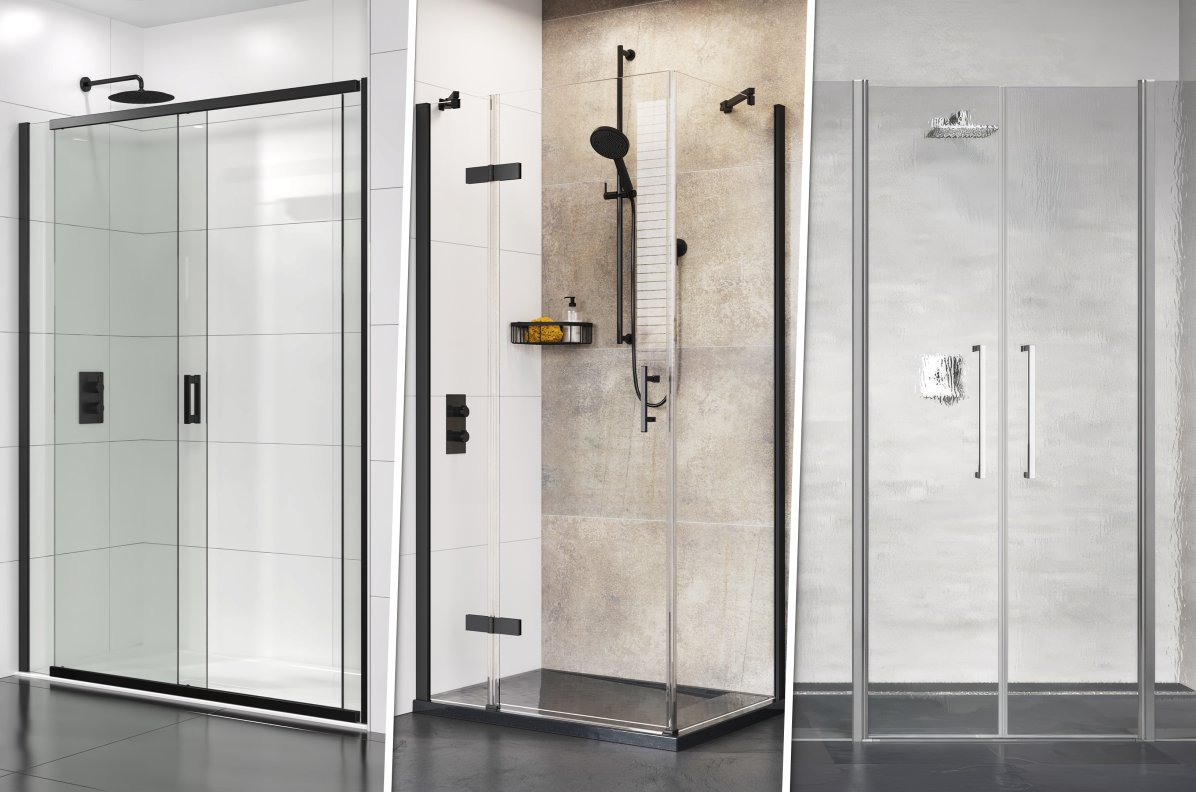
Sliding vs. Hinged Shower Doors
Functionally, sliding doors glide along a track, while hinged doors swing open like a regular door. Sliding doors are great for saving space, but hinged doors offer a wider opening when fully open. This can be helpful for accessibility or when you need to clean the shower area.
In terms of durability and stability, hinged doors often have the edge. They're typically more sturdy when opened and closed, as they're supported by strong hinges. Sliding doors rely on their track system, which can wear over time. However, modern sliding door systems have improved significantly in durability.
The pros of sliding doors include space efficiency and a sleek look. Their cons are potential track issues and limited opening width. Hinged doors offer full access to the shower and a classic look, but they require more space to open and can be a hazard if someone walks into them when open.
Sliding vs. Saloon Shower Doors
Saloon doors, also known as French doors, have a distinct style that sets them apart. They consist of two doors that open from the middle, swinging both inward and outward. Compared to sliding doors, saloon doors offer a more unique, vintage look.
In terms of movement, sliding doors glide smoothly along their track, while saloon doors pivot from the sides. Saloon doors can open wider than sliding doors, but they need space on both sides to swing. Sliding doors are more space-efficient, especially in narrow bathrooms.
Installation of saloon doors is generally simpler than sliding doors, as they don't require a complex track system. However, proper alignment is crucial for both types to ensure they close correctly and prevent water leakage.
Cleaning considerations differ too. Sliding doors can be tricky to clean in their tracks, while saloon doors are generally easier to wipe down. However, saloon doors have more edges and hinges that can collect soap scum and water spots.
Sliding vs. Bifold Shower Doors
When it comes to space efficiency, both sliding and bifold doors are good options for smaller bathrooms. Sliding doors move parallel to the wall, while bifold doors fold in on themselves. Bifold doors can sometimes provide a slightly wider opening in the same space.
Aesthetically, sliding doors offer a more minimalist, contemporary look with their straight lines. Bifold doors have a unique folding action that some find visually interesting. They can add character to a bathroom, especially in more traditional or transitional styles.
In terms of practicality, sliding doors are often better for very small bathrooms where every inch counts. They're also typically easier to use, as you simply slide them open. Bifold doors require a bit more coordination to fold and unfold, which might be less convenient for some users.
For larger bathrooms, both types work well. Sliding doors can span wider openings smoothly, while bifold doors can be designed to cover large areas when folded back. In mid-sized bathrooms, the choice often comes down to personal preference and the overall design theme.
Installation complexity is similar for both types, with proper alignment being crucial. Bifold doors may have more moving parts that could potentially need adjustment over time.
Cleaning-wise, sliding doors have their track issues, while bifold doors have multiple panels and hinges to clean. However, bifold doors can sometimes be easier to clean thoroughly, as you can access all sides of the glass more easily when folded.
In the end, the choice between sliding doors and other types depends on your bathroom size, personal style preferences, and practical needs. Each type has its strengths, and understanding these can help you make the best choice for your space.
How to Choose the Right Sliding Shower Door
When selecting a sliding shower door, start by measuring your bathroom. Consider the space available for the door to slide and ensure there's enough room for comfortable entry. In smaller bathrooms, single sliding doors might be best, while larger spaces can accommodate double sliding doors.
Material and finish are important factors. Most sliding doors use tempered glass for safety, but you can choose between clear, frosted, or textured options for privacy. For the frame and hardware, popular finishes include chrome, brushed nickel, and oil-rubbed bronze. Pick a finish that matches your bathroom fixtures for a cohesive look.
Glass thickness affects both safety and aesthetics. Thicker glass (3/8 to 1/2 inch) is sturdier and often used in frameless designs. Thinner glass (1/4 inch) is more common in framed doors. Always opt for tempered glass, which is safer if it breaks.
Your budget will influence your choices. Framed doors are generally less expensive, while frameless options cost more but offer a sleeker look. Don't forget to factor in installation costs if you're not doing it yourself.
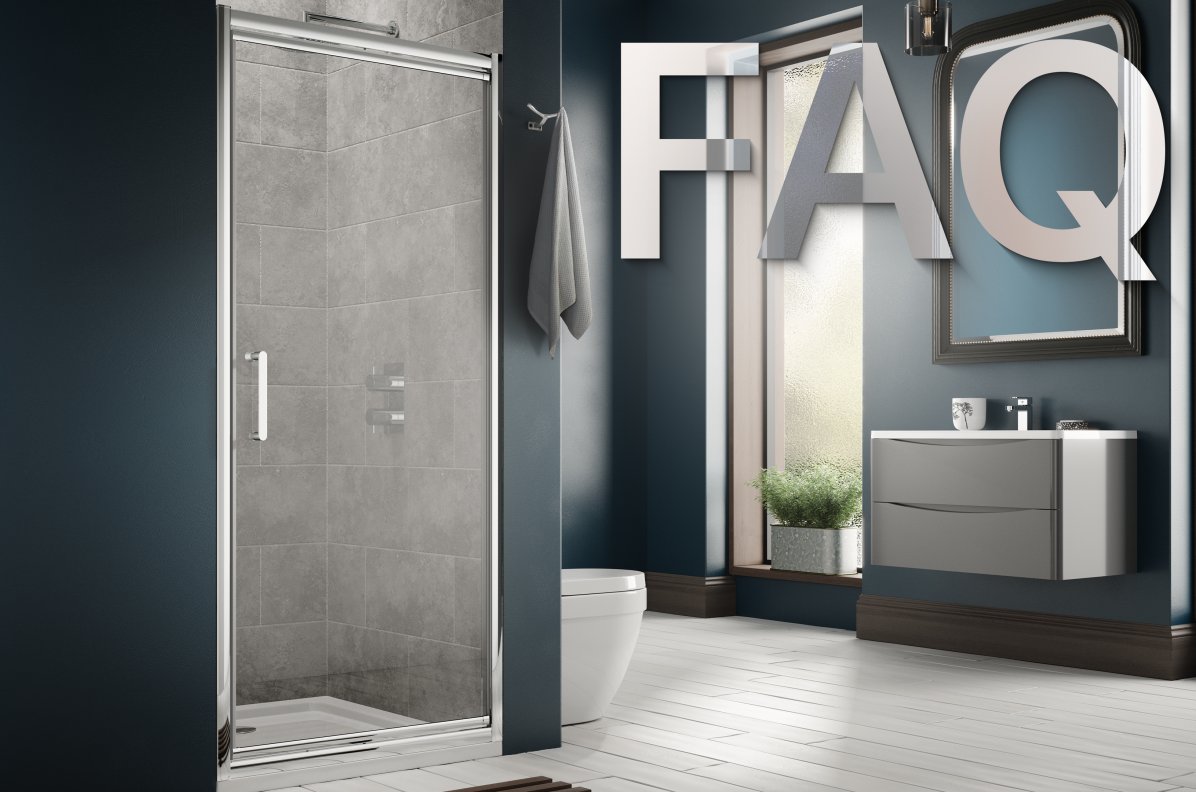
Frequently Asked Questions (FAQs)
Are sliding shower doors suitable for small bathrooms? Yes, sliding doors are ideal for small bathrooms. They don't need swing space, making them ideal where space is tight. Single sliding doors work well in compact areas, while bypass doors (where both panels slide) can be used in slightly larger spaces.
How do I prevent water leakage with sliding shower doors? To prevent leaks, ensure proper installation with a good seal along the bottom and sides. Use a door sweep or drip rail at the bottom of the door. Regular maintenance of the seals and tracks is also important. If you notice any gaps, reapply silicone caulk as needed.
Can I install sliding shower doors on a bath? Absolutely. Many sliding door models are designed specifically for bathtubs. These typically have a lower track and are sized to fit standard tub openings. Make sure to choose a door labelled for tub use, as these are designed to prevent water from escaping during showers.
What are the cost implications of different types of sliding shower doors? Costs vary widely based on size, material, and style. Basic framed sliding doors can start around £150-£250, while high-end frameless options can exceed £1000. Custom sizes or special glass treatments will increase the price. Don't forget to factor in installation costs if you're not doing it yourself.

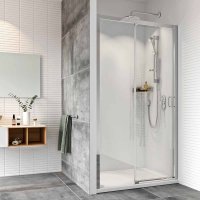
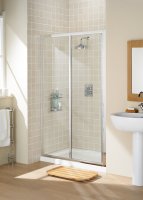
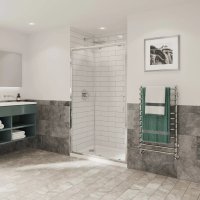
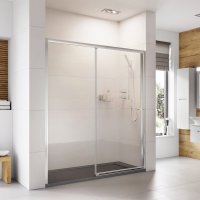
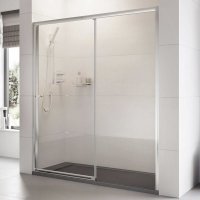
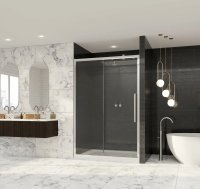
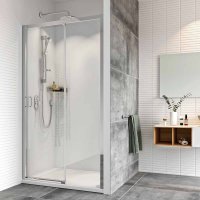
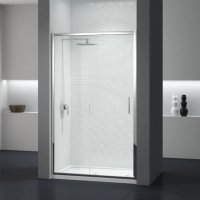
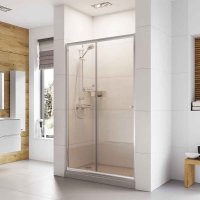
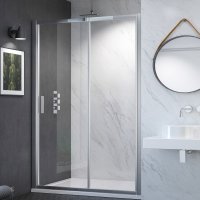
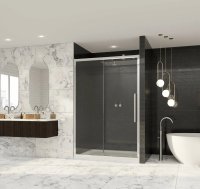
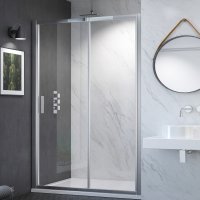
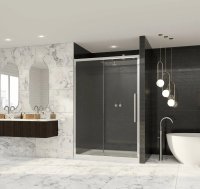
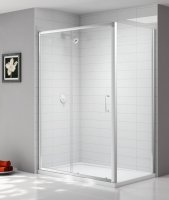
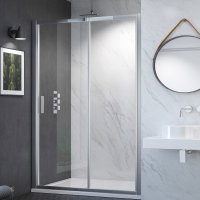
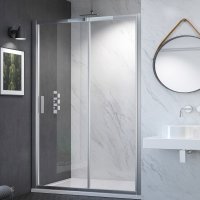
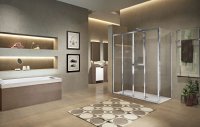
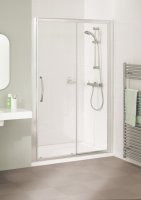
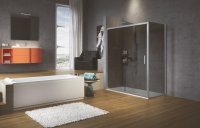
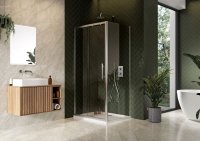
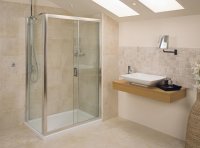
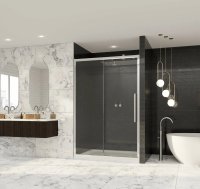
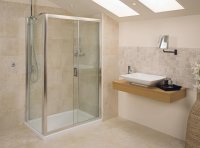
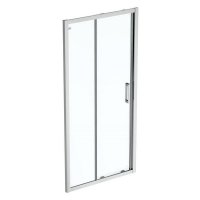
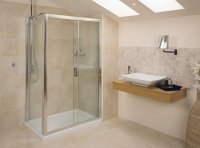
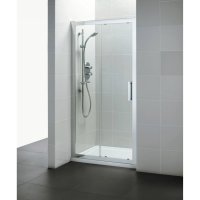
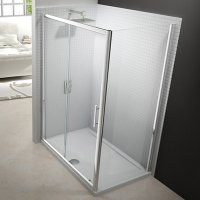
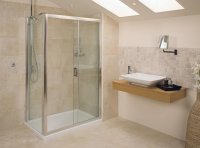
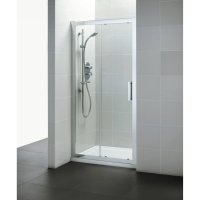
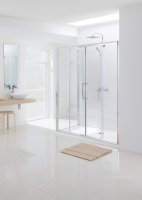
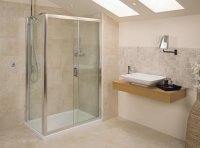
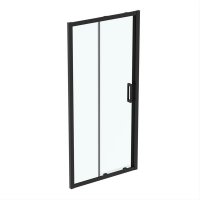
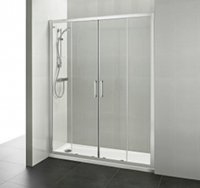
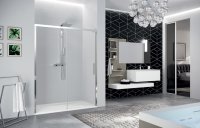
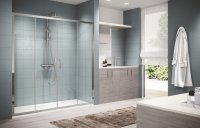
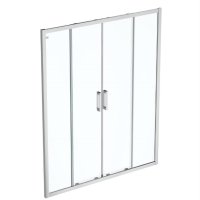
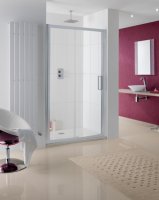
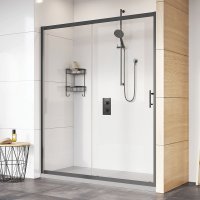
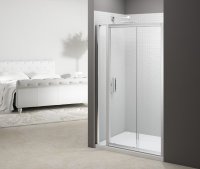
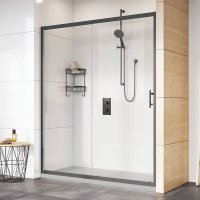
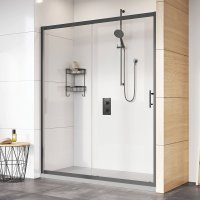
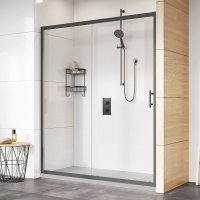
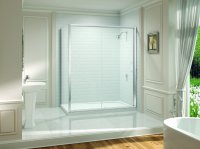
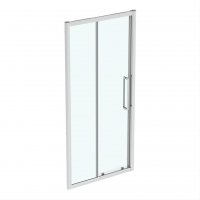
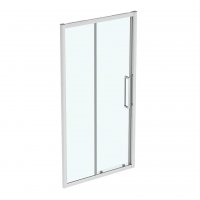
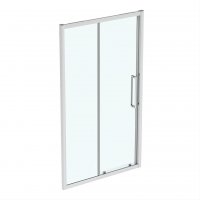
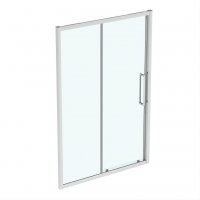
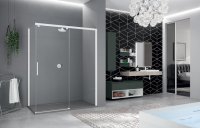
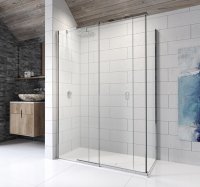
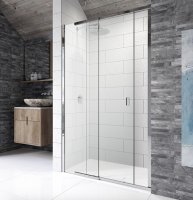
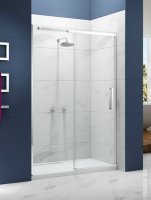
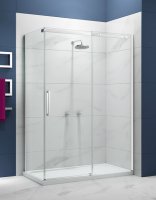
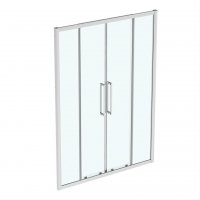
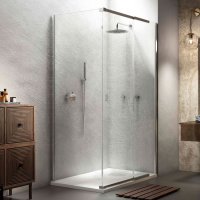
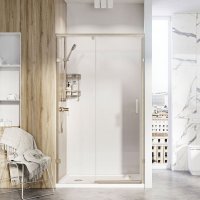
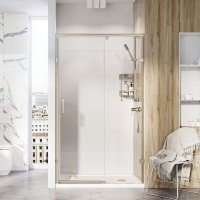
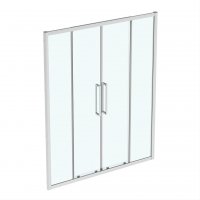
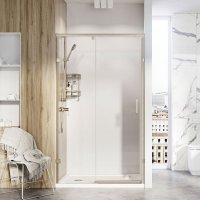
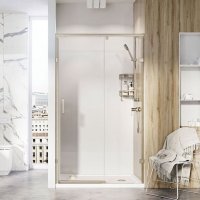
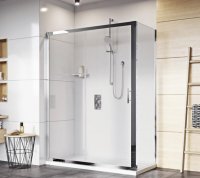
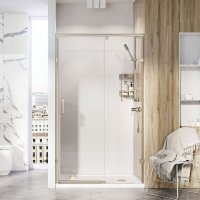
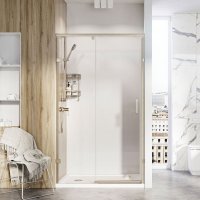
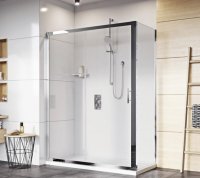
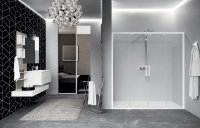
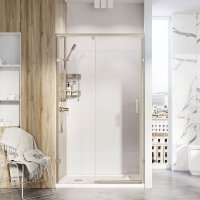
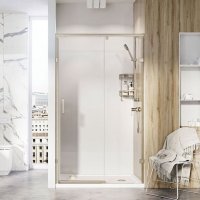
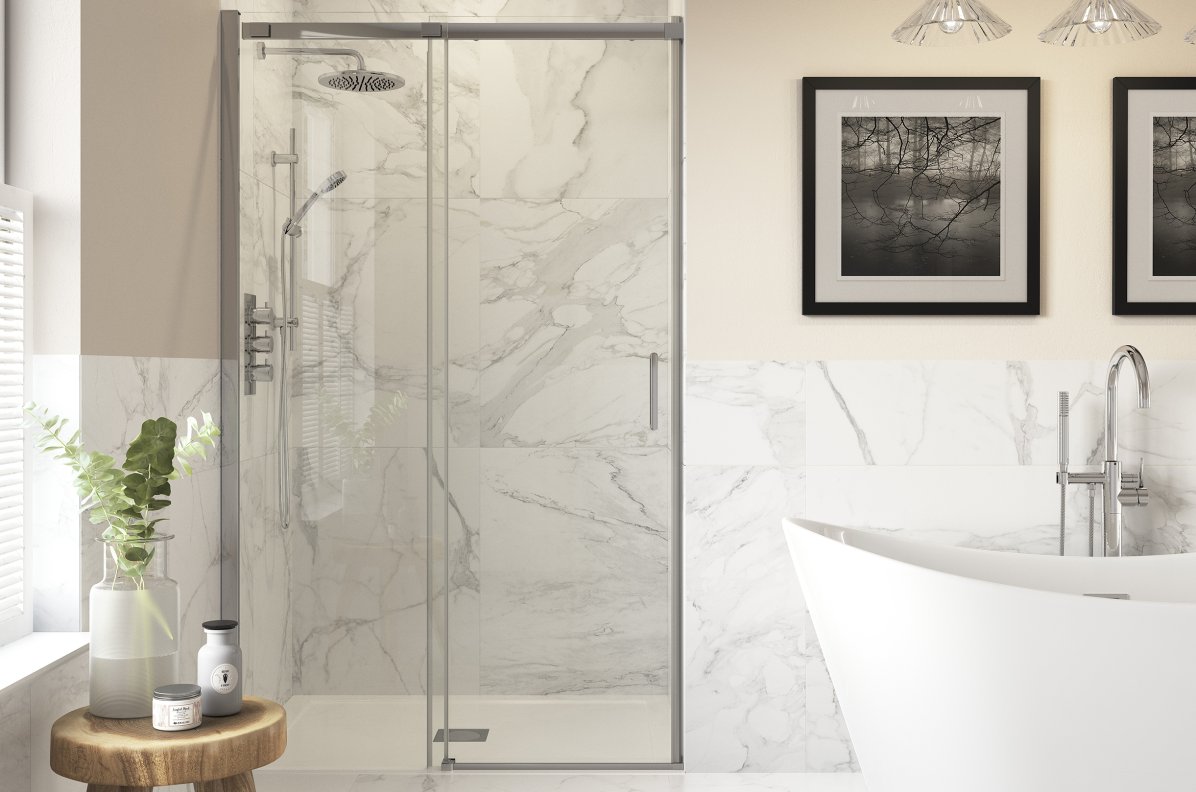
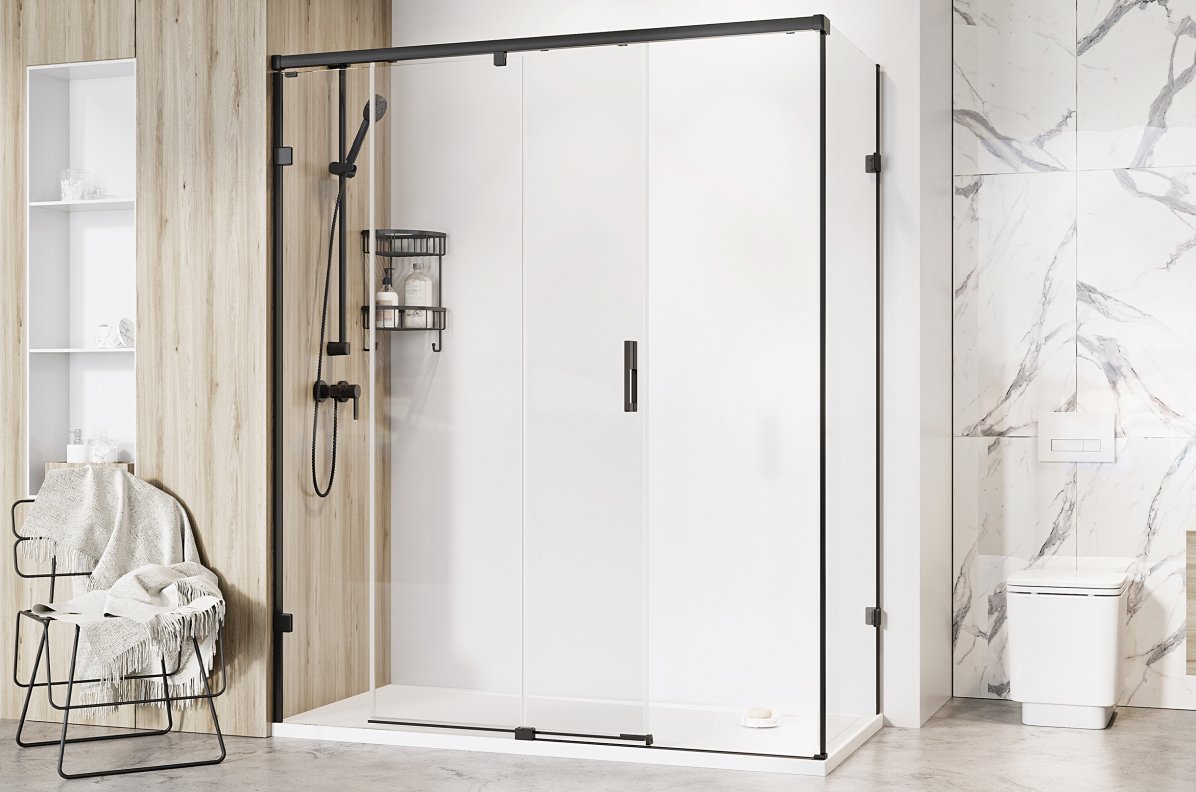
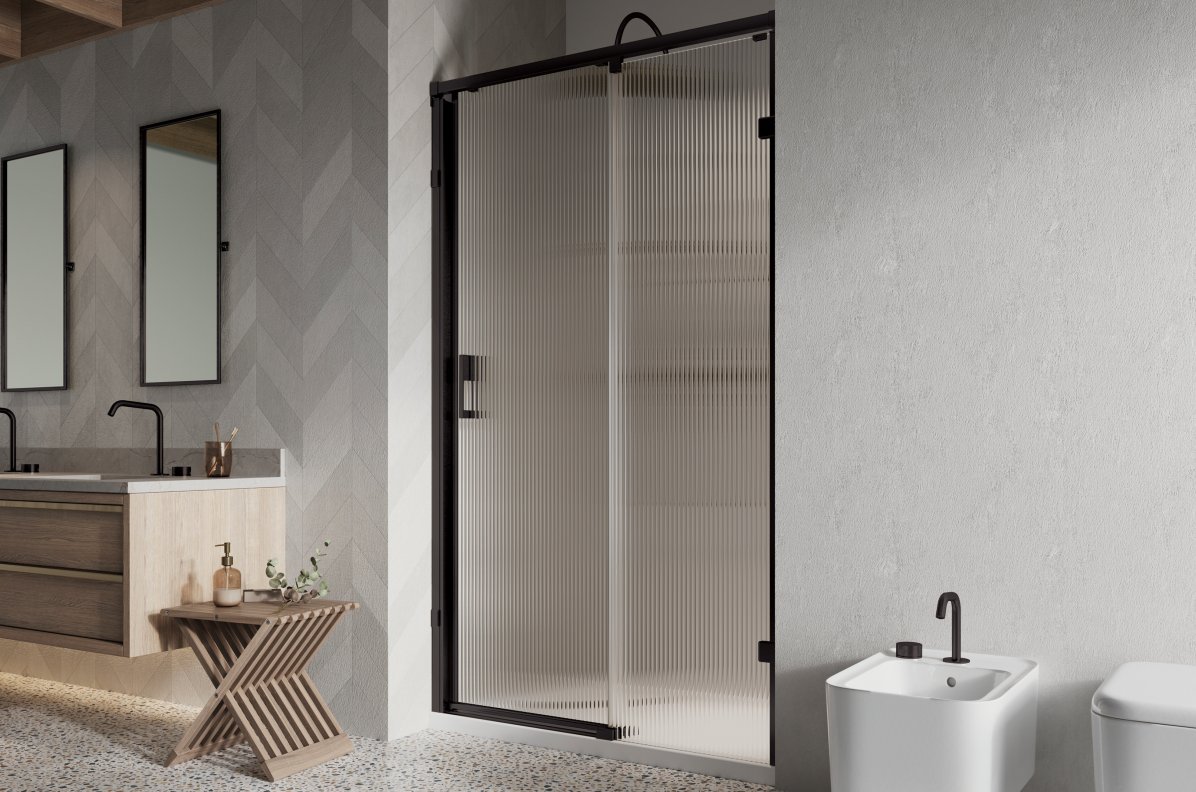




Stay Connected